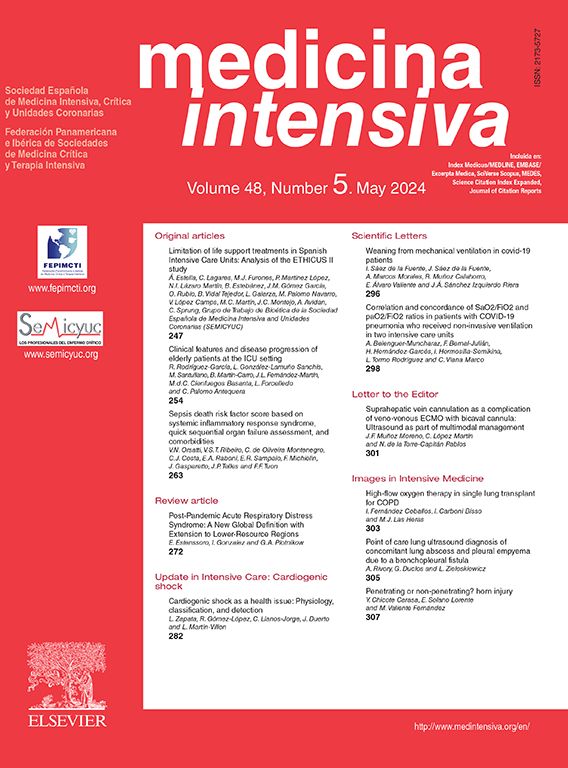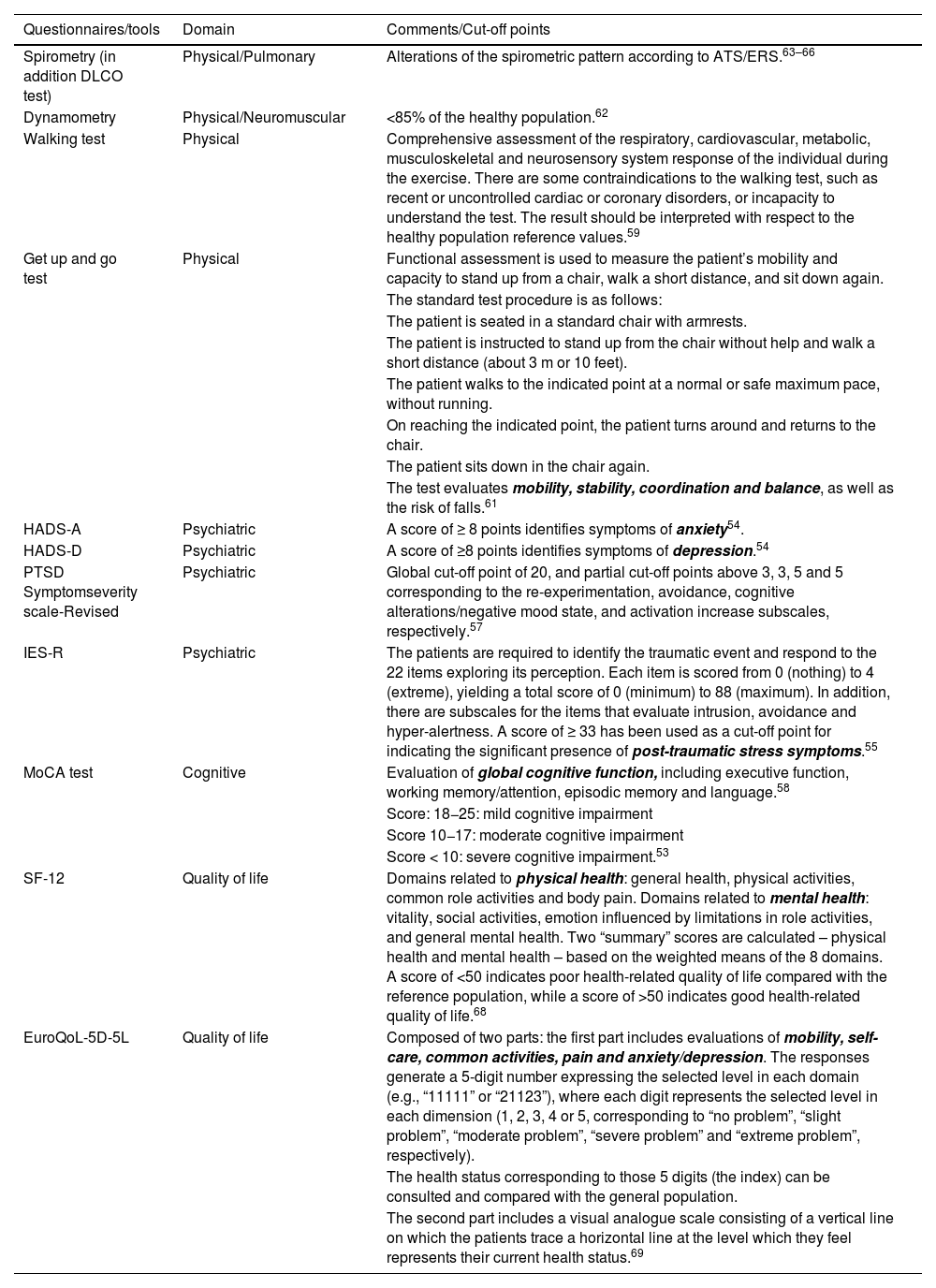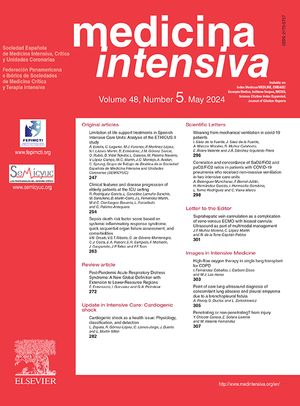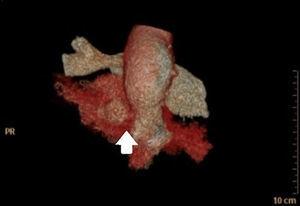Survivors of critical illness may present physical, psychological, or cognitive symptoms after hospital discharge, encompassed within what is known as post-intensive care syndrome. These alterations result from both the critical illness itself and the medical interventions surrounding it. For its prevention, the implementation of the ABCDEF bundle (Assess/treat pain, Breathing/awakening trials, Choice of sedatives, Delirium reduction, Early mobility and exercise, Family) has been proposed, along with additional strategies grouped under the acronym GHIRN (Good communication, Handout materials, Redefined ICU architectural design, Respirator, Nutrition). In addition to these preventive measures during the ICU stay, high-risk patients should be identified for subsequent follow-up through multidisciplinary teams coordinated by Intensive Care Medicine Departments.
Los supervivientes de la enfermedad crítica pueden presentar síntomas físicos, psicológicos o cognitivos tras el alta hospitalaria, que se engloban en lo que se conoce como síndrome post-cuidados intensivos. Estas alteraciones son consecuencia tanto del propio proceso crítico como de las actuaciones sanitarias que ocurren en torno al mismo. Para su prevención se ha propuesto la aplicación del paquete de medidas ABCDEF (Asses/treat pain, Breathing/awakening trials, Choice of sedatives, Delirium reduction, Early mobility and exercise, Family) al que recientemente se han sumado otras, agrupadas en las siglas GHIRN (Good comunication, Handout materials, Redefined ICU architectural design, Respirator, Nutrition). Además de estas medidas de prevención durante el ingreso en la UCI, los pacientes de riesgo deben ser identificados para un posterior seguimiento mediante equipos multidisciplinares coordinados por los Servicios de Medicina Intensiva.
Article
Go to the members area of the website of the SEMICYUC (www.semicyuc.org )and click the link to the magazine.











